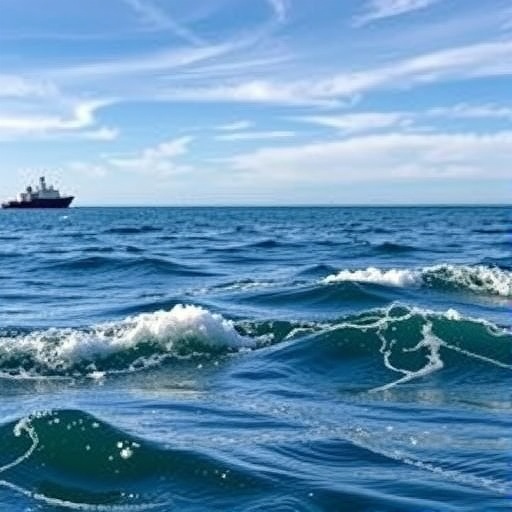The Pacific Marine Science Alliance Society (PMSA) and the Marine Environmental Observation, Prediction and Response Network (MEOPAR) have forged a groundbreaking three-year partnership aimed at fortifying Canada’s national ocean research endeavors across its extensive three-coast geography. This strategic alliance signals a significant step toward holistic, coast-to-coast-to-coast oceanographic collaboration, leveraging the combined expertise and infrastructure of leading Canadian institutions to address complex marine environmental challenges.
UBC, as one of the five pivotal member universities comprising the PMSA, plays a central role in this initiative, given its stewardship of the Bamfield Marine Sciences Centre. The Centre serves as a critical hub for marine and coastal research, integrating interdisciplinary efforts to enhance understanding of ocean systems and sustainability. By joining forces with MEOPAR, PMSA aims to elevate national research synergies and technological capacities to unprecedented levels, positioning Canada at the forefront of ocean science innovation.
The partnership is underpinned by a $300,000 funding commitment, which will catalyze collaborative efforts across institutions and disciplinary boundaries. This includes developing robust methodologies to tackle pressing issues such as ocean climate resilience, predictive modeling for marine hazard events, and sustainable management of oceanic resources. The transdisciplinary framework established here allows for dynamic interactions between physical oceanography, marine chemistry, ecosystem science, and socio-economic dimensions of ocean usage.
Central to the collaboration’s mission is an emphasis on Indigenous-led stewardship—a recognition of the essential knowledge and leadership Indigenous communities contribute to sustainable ocean governance. Integrating traditional ecological knowledge with advanced scientific tools offers a powerful avenue to generate actionable insights and stewardship practices that respect both cultural heritage and ecosystem integrity. This facet notably enriches research outcomes and ensures equity in ocean policy dialogues.
An essential component of this partnership involves enhancing student and researcher mobility, fostering an environment where emerging scientists gain experiential learning through cross-regional exchanges. Access to international networks, especially expanding ties with Chile, France, and other global partners, will facilitate the sharing of oceanographic infrastructure, datasets, and analytical platforms. These exchanges are designed to improve data interoperability and advance global comparative studies essential for understanding climate-driven ocean phenomena.
In addressing the escalating threats to marine ecosystems, including ocean warming, acidification, deoxygenation, and biodiversity collapse, this alliance seeks to push the boundaries of oceanographic predictive science. Innovative sensor networks, coupled with high-resolution modeling and real-time data assimilation, are cornerstones for developing early-warning systems and adaptive management strategies that can mitigate the effects of natural and anthropogenic stressors on marine environments.
Dr. Philippe Tortell, a professor in UBC’s department of earth, ocean and atmospheric sciences and PMSA board member, highlights the scientific imperative driving this partnership. He underscores the urgency of deciphering ocean processes that regulate essential ecosystem services—such as carbon sequestration, nutrient cycling, and habitat provision—that humanity depends upon for food security, climate regulation, and biodiversity conservation. Collaborative research efforts supported by this initiative aim to elucidate the mechanistic underpinnings of these processes amid rapid environmental change.
Beyond pure scientific discovery, this partnership is significant for its commitment to knowledge mobilization and community empowerment. By developing tools for coastal community adaptation and resilience, the program bridges scientific research with practical applications that enhance the capacity of vulnerable populations to withstand and recover from ocean hazards. This vision embraces a multidisciplinary approach encompassing environmental monitoring, socio-economic evaluations, and policy integration.
Dr. David Turpin, Chair of PMSA, articulates the strategic vision of harnessing Canada’s unparalleled coastal assets to boost the national economy and environmental stewardship. Recognizing the blue economy as a vital contributor to sustainable development, the expanded collaboration with MEOPAR will support innovation, training, and capacity-building to cultivate the next generation of ocean scientists, engineers, and policymakers dedicated to unlocking ocean potential responsibly.
MEOPAR Executive Director Dr. Jamie Snook emphasizes the broader national and international implications of this collaboration. He notes that building capabilities in western Canada not only balances regional research advancements but also integrates Canada’s oceanographic activities into continental and global frameworks. This interconnected approach fosters transformative research opportunities, enabling Canada to remain a leader in ocean science and management.
Technologically, the partnership will leverage cutting-edge ocean observation systems, integrating autonomous underwater vehicles, sensor arrays, satellite remote sensing, and advanced machine learning algorithms for data analysis. By improving predictive accuracy of marine hazard models, such as tsunami forecasting and ocean circulation anomalies, the research initiative aims to mitigate risks for coastal communities and optimize resource allocation for emergency response.
The alliance’s focus on climate data integration across multiple oceanographic subfields—including physical oceanography, ocean chemistry, and biology—facilitates comprehensive climate impact assessments. This multidimensional dataset aggregation supports enhanced understanding of feedback mechanisms between oceanic changes and atmospheric processes, offering insights essential for refining global climate models.
Ultimately, this new era of Canadian ocean research collaboration exemplifies a visionary framework combining scientific rigor, Indigenous knowledge, technological innovation, and international cooperation. These integrated efforts are poised to produce critical advances in understanding and managing ocean health, promoting resilience in marine ecosystems and societies dependent on them, now and well into the future.
Subject of Research: Oceanographic collaboration focused on climate resilience, marine hazard prediction, and sustainable ocean resource management across Canada’s coasts.
Article Title: (Not specified in the original content)
News Publication Date: (Not specified in the original content)
Web References: (Not provided)
References: (Not provided)
Image Credits: (Not specified)
Keywords: Oceanography, Coastal processes, Coastal zones, Oceans, Ocean temperature, Ocean acidification, Climate change, Climate data, Scientific collaboration




